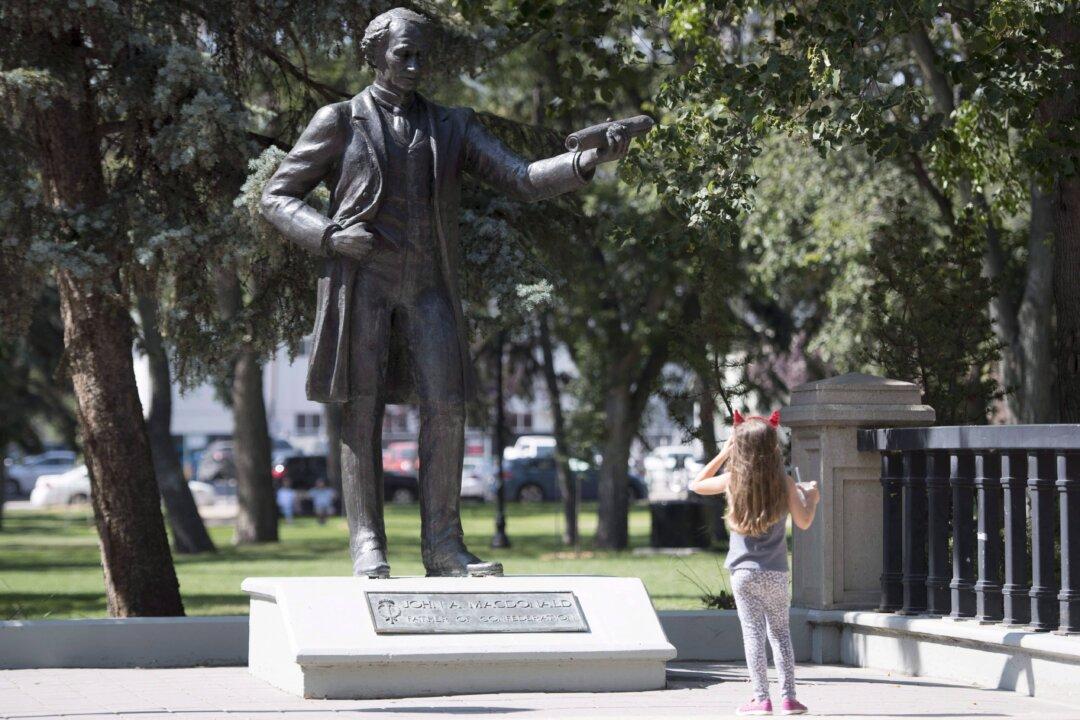The Regina City Council has decided to remove the statue of Canada’s first prime minister from a park and put it in storage until a new location is found.
In a 7-4 vote Wednesday, councilors voted in favour of removing the statue of Sir John A. Macdonald from the city’s Victoria Park and put it in storage, coming after calls for its removal because of the former prime minister’s role in establishing colonial systems which include Indian residential schools.





